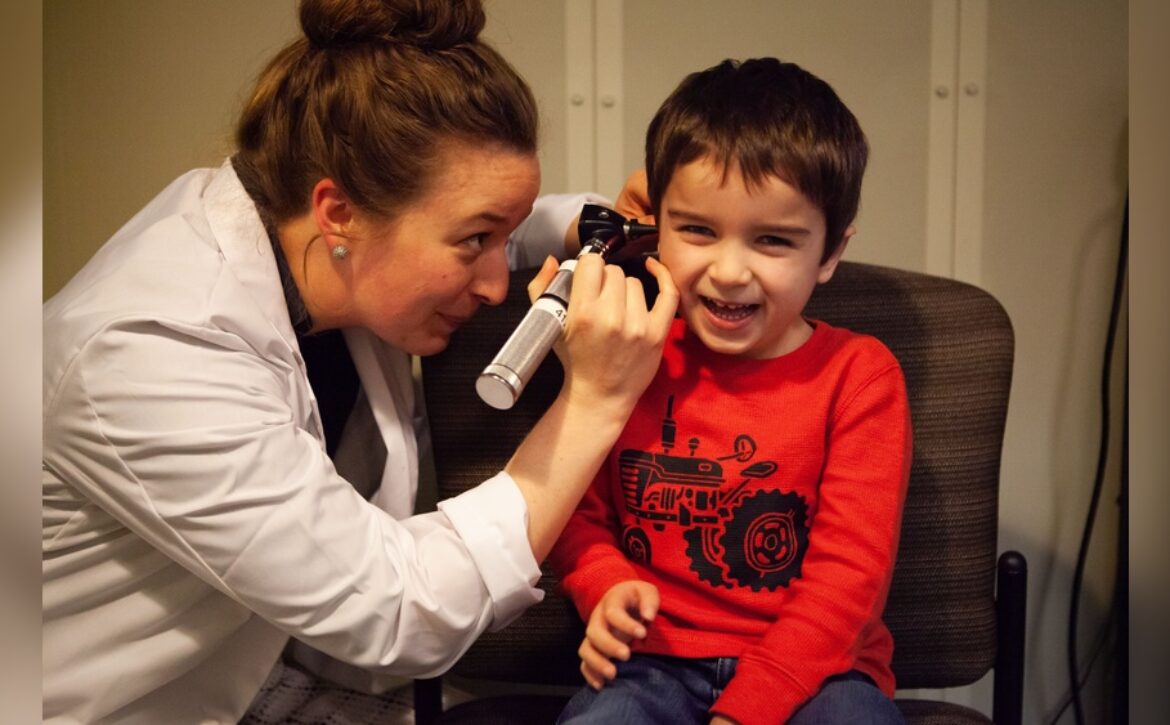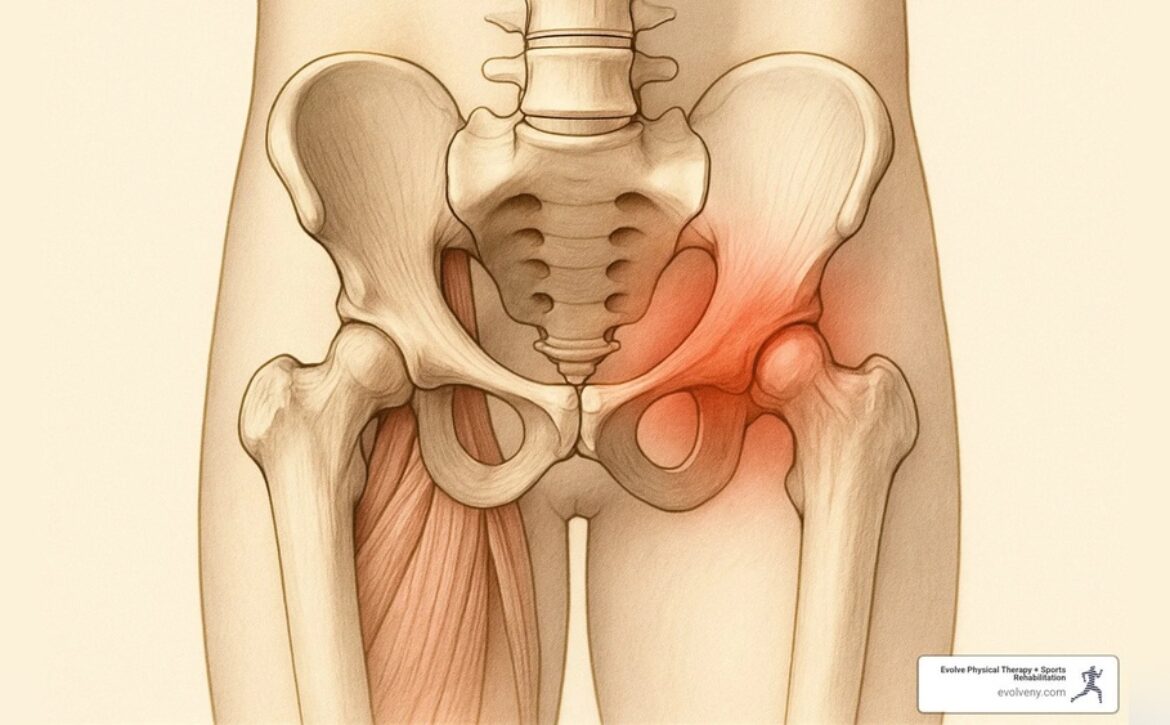
How to Become a Healthcare Assistant: Your Ultimate Guide
Are you considering a career as a healthcare assistant? This rewarding role allows you to make a real difference in people’s lives every day.
Imagine the satisfaction of helping patients feel comfortable and cared for. As a healthcare assistant, you’ll work alongside nurses and doctors, gaining hands-on experience and skills that are in high demand. But how do you get started? What qualifications do you need, and what does the job really entail?
You’re in the right place to find out. This article will guide you through every step of becoming a healthcare assistant, ensuring you have all the information to kickstart your career. Dive in to discover how you can turn your passion for helping others into a fulfilling profession.

Role Of A Healthcare Assistant
Healthcare assistants play a vital role in patient care, offering support to nurses and doctors. To become one, complete a healthcare training program and gain practical experience. Skills like empathy, communication, and reliability are essential for success in this rewarding career.
The role of a healthcare assistant is both rewarding and crucial within the medical field. As a bridge between patients and medical professionals, healthcare assistants provide essential support that ensures the smooth functioning of healthcare facilities. Whether you’re delivering compassionate care to patients or assisting nurses with daily tasks, the impact of your work is profound and immediate.
What Does A Healthcare Assistant Do?
Healthcare assistants are tasked with a variety of duties that can differ based on the setting. In a hospital, you might find yourself taking vital signs, helping patients with mobility, or keeping them comfortable. In a care home, the focus might shift towards personal care, such as assisting with bathing and dressing. This diversity keeps the role dynamic and you constantly learning.
Skills You Need To Succeed
Strong communication skills are vital. You will often be the first point of contact for patients and their families. Your ability to listen and respond effectively can make a significant difference in their experience. Empathy is another key skill. Understanding a patient’s feelings and needs can foster a comforting environment, which is essential for recovery and well-being.
The Importance Of Teamwork
As a healthcare assistant, you will work closely with nurses, doctors, and other staff. Effective teamwork ensures that patient care is coordinated and efficient. Are you ready to be part of a team that shares a common goal? Working together, you can achieve more than working alone.
Opportunities For Growth
The role of a healthcare assistant is just the beginning. Many use this position as a stepping stone to further their careers in healthcare. With experience, you might pursue additional training to become a nurse or a specialized technician. Do you see yourself advancing in the healthcare field? The possibilities are vast and varied.
Your Impact On Patient Lives
The care you provide directly affects patient outcomes. Even small actions, like offering a comforting word or a helping hand, can make a significant difference. Imagine the satisfaction of knowing your work contributes to someone’s health and happiness. Wouldn’t you like to make that kind of impact daily? By choosing to become a healthcare assistant, you’re embarking on a journey that is as fulfilling as it is challenging. The role demands dedication and compassion but offers immense rewards in return. Are you ready to take the first step towards making a real difference in the lives of others?
Essential Skills
Becoming a healthcare assistant requires a unique set of skills. These skills help provide the best care for patients. They also ensure a smooth workflow with healthcare teams. Understanding these skills is crucial for those aspiring to enter this field.
Communication Skills
Clear communication is vital for healthcare assistants. They interact with patients and medical staff daily. Good communication helps in understanding patient needs. It ensures the proper delivery of care instructions.
Empathy And Compassion
Healthcare assistants must show empathy. Patients need emotional support during difficult times. Compassionate care improves patient comfort and trust. This skill is essential for building strong patient relationships.
Attention To Detail
Being detail-oriented is crucial in healthcare. Assistants must follow care plans accurately. They monitor patient conditions and report changes. A keen eye helps prevent errors and ensures patient safety.
Physical Stamina
Healthcare assistants often work long hours. Physical stamina helps manage demanding tasks. They assist patients with mobility and personal care. Being physically fit is necessary for effective performance.
Problem-solving Skills
Quick thinking is important in healthcare settings. Assistants face unexpected situations regularly. Problem-solving skills help manage these challenges. They ensure efficient solutions and patient well-being.
Teamwork
Healthcare environments require strong teamwork. Assistants collaborate with doctors and nurses. Effective teamwork ensures seamless patient care. It promotes a supportive and efficient working atmosphere.
Educational Requirements
Embarking on a career as a healthcare assistant is rewarding. One crucial step is understanding the educational requirements. This foundation supports your ability to provide quality care. Let’s explore what qualifications you need.
High School Diploma Or Equivalent
Most healthcare assistant roles require a high school diploma. This basic qualification ensures you have foundational skills. If you haven’t completed high school, a GED is also accepted.
Relevant Certifications
Certifications enhance your credibility. Many employers prefer candidates with a CPR certification. Basic First Aid training is also beneficial. These certifications demonstrate readiness to handle emergencies.
Healthcare Assistant Training Programs
Training programs offer specialized courses. These programs cover patient care, hygiene, and safety. Completing a program enhances your knowledge and skills. Many community colleges offer these courses.
On-the-job Training
Some employers provide on-the-job training. This training includes shadowing experienced staff. It helps you learn practical skills in real-world settings. Ask about training opportunities during interviews.
Continuing Education Opportunities
Continuing education keeps your skills current. Workshops and seminars are excellent resources. They offer insights into new healthcare practices. Stay informed to improve your service quality.
Certification And Training
Becoming a healthcare assistant is a rewarding career choice. Certification and training are essential steps on this path. They ensure you are well-equipped for the role. With proper training, you can provide quality care and support.
Understanding Certification Requirements
Certification is crucial for healthcare assistants. It validates your skills and knowledge. Employers often require it for hiring. Each country has different requirements. Research your local guidelines to understand what’s needed.
Types Of Training Programs
Training programs vary in length and content. Some offer hands-on experience. Others focus on theoretical knowledge. Choose a program that suits your learning style. Many community colleges offer suitable courses. Online options are also available.
Acquiring Practical Skills
Practical skills are vital in healthcare. Training programs often include clinical experience. This helps you learn real-world skills. You will work under supervision. Gain confidence through practice.
Continuing Education Opportunities
Healthcare is always evolving. Continuing education keeps you updated. Many institutions offer workshops and courses. These improve your knowledge and skills. Stay informed about the latest healthcare trends.
Preparing For Certification Exams
Certification exams test your knowledge. Preparation is key to success. Study guides can be helpful. Practice tests give you a feel for the exam. A focused study plan can lead to passing results.
Job Search Strategies
Searching for a job as a healthcare assistant can be challenging. With the right strategies, you can find the perfect position. Focus on using effective techniques to make your search easier and more successful.
Networking
Networking can open many doors. Start by connecting with professionals in the healthcare field. Attend local healthcare events and job fairs. Talk to friends and family who work in healthcare. They might know of job openings. Building relationships can lead to job opportunities.
Online Job Boards
Online job boards are great resources. Websites like Indeed and LinkedIn list many healthcare jobs. Use search filters to find positions that match your skills. Check these sites regularly for new openings. Applying early can increase your chances.
Tailoring Your Resume
A well-tailored resume can catch employers’ eyes. Highlight your healthcare skills and experience. Use keywords from the job description. Make sure your resume is clear and easy to read. A strong resume can lead to interviews.
Contacting Healthcare Facilities Directly
Reach out to healthcare facilities in your area. Visit their websites to find contact details. Call or email to inquire about job openings. Some jobs may not be advertised. This direct approach shows initiative and interest.
Volunteering And Internships
Volunteering or internships can provide valuable experience. They also help you make connections in the field. Many facilities welcome volunteers. This experience can sometimes lead to paid positions. It also strengthens your resume.
Crafting A Strong Resume
Creating a strong resume for a healthcare assistant role involves highlighting relevant skills and experiences. Focus on patient care, communication abilities, and certifications. Tailor your resume to showcase your understanding of healthcare environments and teamwork. This approach helps stand out to potential employers.
Crafting a strong resume is a crucial step in your journey to becoming a healthcare assistant. Your resume is your first impression, showcasing your skills and experiences to potential employers. It’s your chance to stand out and make them see why you are the perfect fit for their team.
Highlight Your Relevant Experience
Focus on experiences that relate directly to healthcare assistance. Whether you’ve volunteered at a local clinic or worked in a related field, emphasize these roles. Include specific tasks and accomplishments that demonstrate your ability to handle the responsibilities of a healthcare assistant.
Showcase Your Skills
Healthcare assistants need a variety of skills. Highlight your ability to communicate effectively, manage time efficiently, and handle patient care responsibilities. Include both soft skills like empathy and hard skills such as first aid certification.
Use Action-oriented Language
Use strong, action-oriented verbs to describe your experiences. Words like “administered,” “coordinated,” and “assisted” can make your responsibilities sound dynamic. This approach can give employers a clearer picture of your active role in previous positions.
Include Certifications And Training
Adding certifications can make your resume pop. If you’ve completed any healthcare-related courses or training programs, list them. Certifications like CPR or a nursing assistant course show your commitment to the field and readiness to take on the job.
Tailor Your Resume To The Job Description
Every healthcare assistant position is unique. Adjust your resume to reflect the specific requirements of each job. Look at the job description carefully and match your skills and experiences with what the employer is seeking.
Proofread For Professionalism
A single typo can tarnish an otherwise stellar resume. Proofread carefully to ensure your resume is polished. Consider asking a friend or mentor to review it, providing an extra set of eyes to catch any mistakes. Crafting a compelling resume is an art. Think about what makes you unique and how you can communicate that effectively. What would make a hiring manager remember your name after reading through a stack of resumes? Reflect on your experiences, highlight your strengths, and let your personality shine through.
Interview Preparation Tips
Preparing for an interview as a healthcare assistant can be daunting. It’s crucial to showcase your skills, compassion, and dedication to patient care. Confidence and preparation are key. This section provides valuable tips to help you shine in your interview.
Research The Healthcare Facility
Understand the facility’s mission and values. Know their services and specialties. Familiarity shows genuine interest and commitment. Tailor your responses to align with their goals.
Review Common Interview Questions
Prepare for typical questions about experience and skills. Practice answering questions on patient care scenarios. Highlight your communication and teamwork abilities. Be ready to discuss your motivation for becoming a healthcare assistant.
Dress Professionally
Choose attire that fits the role. Neat and conservative clothing is best. First impressions matter. A professional appearance demonstrates seriousness and respect.
Bring Necessary Documentation
Prepare copies of your resume and certificates. Have references ready if requested. Documentation supports your qualifications and experience. It shows preparedness and attention to detail.
Highlight Your Soft Skills
Emphasize empathy, patience, and adaptability. These are vital in healthcare settings. Soft skills enhance patient interaction and care quality. They set you apart from other candidates.
Ask Insightful Questions
Prepare thoughtful questions about the role and team. Inquire about opportunities for growth and training. Asking questions shows engagement and interest. It also helps you learn more about the workplace.
Career Advancement Opportunities
Becoming a healthcare assistant opens doors to various career paths. The healthcare field offers numerous opportunities for growth. Many healthcare assistants pursue advanced roles. With dedication, you can enhance your skills and progress professionally. Career advancement is achievable with further education and training. Explore these pathways to advance your career.
Certification And Training Programs
Certification boosts your credentials. Many programs offer specialized training. These programs improve your expertise. They prepare you for advanced roles. You can choose from a variety of courses. Each course focuses on different skills. Some programs may require exams. Others offer hands-on experience. Completing these programs can increase your job prospects.
Specialized Roles
Healthcare assistants can specialize in various areas. Consider becoming a phlebotomy technician. Or explore roles like surgical technologist. Each role has unique responsibilities. They require specific skills and knowledge. Specializing can lead to higher pay. It can also offer more challenging work. Choose a specialization that matches your interests.
Further Education
Further education can advance your career. Many healthcare assistants pursue nursing degrees. A nursing degree offers more opportunities. It allows you to take on more responsibilities. You can also consider studying healthcare management. This field focuses on administration roles. Education opens new doors in the healthcare industry.
Networking And Professional Associations
Networking is vital for career growth. Join professional associations for healthcare assistants. These groups offer support and resources. They provide opportunities to connect with peers. Networking can lead to job opportunities. It can also offer mentorship and guidance. Build relationships with industry professionals. Stay informed about the latest trends and practices.
Challenges And Rewards
Becoming a healthcare assistant involves both challenges and rewards. Challenges include long hours and emotional stress. Rewards come from helping patients and gaining valuable medical experience.
Becoming a healthcare assistant is a journey filled with unique challenges and rewarding moments. While the path may test your resilience, it also offers profound satisfaction and opportunities to make a real difference in people’s lives. Embracing both the trials and triumphs will help you grow personally and professionally in this vital role.
Challenges
As a healthcare assistant, you will encounter various challenges that will test your skills and patience. You will often face physically demanding tasks, like lifting patients or being on your feet for long hours. Imagine juggling multiple responsibilities, from administrative duties to direct patient care, all while maintaining a compassionate demeanor. Communication can sometimes be tricky, especially when dealing with patients who are anxious or in distress. You will need to hone your ability to listen and convey information clearly, ensuring patients feel understood and supported. There may be moments when emotional resilience is key, as you witness the struggles and sometimes the decline of those you care for.
Rewards
Despite the challenges, the rewards of being a healthcare assistant are deeply fulfilling. You have the chance to build meaningful relationships with patients, providing comfort and companionship during their stay. Your work directly impacts the quality of life for those in your care, offering them dignity and respect in vulnerable times. Many healthcare assistants find immense satisfaction in knowing they are part of a team that saves lives and improves health outcomes. Every day brings new learning experiences, enhancing your skills and expanding your career potential. Take a moment to reflect on the gratitude expressed by patients and their families. Isn’t it incredible how a simple act of kindness can brighten someone’s day and offer hope? In these moments, the sense of purpose and accomplishment is unparalleled, reminding you why you chose this path. Would you be ready to face challenges head-on to experience these rewards? The choice is yours.

Maintaining Work-life Balance
Maintaining work-life balance is crucial for healthcare assistants. The role can be demanding, with long hours and emotional challenges. Balancing professional responsibilities with personal life is key to avoiding burnout. It ensures you stay energized and focused. Let’s explore how to achieve harmony between work and personal life as a healthcare assistant.
Setting Boundaries
Learn to say no when necessary. Protect your personal time fiercely. Make clear distinctions between work and home. This helps maintain sanity and peace. Prioritize tasks and manage time effectively.
Time Management Skills
Organize your day to avoid chaos. Use planners or digital calendars. Schedule breaks and stick to them. Efficient time management reduces stress. It creates room for relaxation and hobbies.
Prioritizing Self-care
Make self-care a routine. Exercise regularly for physical health. Meditate for mental clarity. Eat balanced meals and get adequate sleep. Self-care boosts mood and performance at work.
Seeking Support
Talk to colleagues or mentors. Share your struggles and listen to theirs. Build a support network at work. Lean on family and friends for emotional support. Support networks ease the burden of demanding roles.
Creating A Relaxing Environment
Design your home space for relaxation. Keep it tidy and clutter-free. Use calming colors and soft lighting. Create a peaceful retreat after a busy day. Relaxation spaces help unwind and recharge.
Frequently Asked Questions
What Qualifications Do Healthcare Assistants Need?
Healthcare assistants typically need a high school diploma or equivalent. Some employers may require additional certifications or training programs. On-the-job training is often provided, allowing individuals to gain practical experience. Specific certifications, like CPR, may enhance job prospects. Always check local requirements, as they can vary based on location and employer.
How Long Does It Take To Become One?
Becoming a healthcare assistant can take a few months. Most programs or courses last between 6 to 12 weeks. This duration includes both classroom learning and practical training. The time may vary depending on the specific program or employer requirements.
What Skills Are Essential For Healthcare Assistants?
Healthcare assistants need strong communication and interpersonal skills. They should be compassionate, patient, and attentive to detail. Basic medical knowledge and the ability to follow instructions are crucial. Physical stamina is important for handling demanding tasks. Problem-solving skills are also beneficial in dynamic healthcare settings.
Are There Advancement Opportunities In This Role?
Yes, there are advancement opportunities for healthcare assistants. With experience and further training, they can become senior healthcare assistants or pursue specialized roles. Some choose to further their education to become nurses or other healthcare professionals. Continuous learning and skill development can lead to career growth.
Conclusion
Becoming a healthcare assistant opens many doors. You gain valuable skills. You help people daily. Start with the right training and qualifications. Experience is key. Volunteer or intern if possible. Build your resume. Network with professionals in the field. Stay updated on healthcare trends.
Compassion and patience are vital traits. These make you stand out. Remember, every step brings you closer to your goal. It takes time and effort. But the reward is worth it. A fulfilling career in healthcare awaits you. Keep pushing forward.
Your journey begins now.





